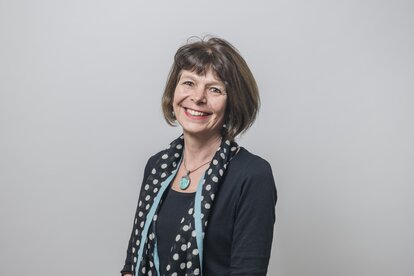“Of course gender issues are important to us – but the problem is, we have no budget!” Anyone who has worked on gender in development – and probably gender in any other domain – is likely to have heard this comment. However, a “lack of budget” is often less of an issue than the crucial one of how decisions are taken on whatever budget is available. Many minds have been brought to bear on the financing of development activities promoting gender equality, and tools have been developed to track the flow of finances in a gender disaggregated manner through allocation, expenditure and verification.
A Traverse platform discussion at the head office of the Swiss Development Agency, SDC, on Tuesday afternoon served to bring together a number of highly experienced individuals working on gender and financing – from the international level of UN Women, to the field level of a Project Manager working in Kosovo. The discussions were set against the background of the Addis Ababa Action Agenda for Financing Sustainable Development (AAAA for short), on which international agreement was reached in July, as well as the more recent ratification of the Sustainable Development Goals, SDGs. Essentially, the AAAA established the framework for the funding of the SDGs. Within the AAAA, there is specific provision for promoting gender equality – due in no small part to the negotiation efforts of UN Women, supported by Switzerland and other like-minded countries. Mechanisms foreseen include appropriate policies; a public financing system that takes into account the specific needs and roles of women and men; the creation of an “enabling environment” for women’s economic empowerment; and building the capacities of women and girls to participate in decision making over financial matters. Anyone unaware of the extent to which UN Women has promoted gender in government financial planning is recommended to visit their website http://gender financing.unwomen.org/en and its precursor, http://www.gender-budgets.org/. According to Zohra Khan, Senior Policy Advisor for Governance and national Planning at UN Women, Gender Responsive Budgeting, or GRB, has been supported by UN Women in 73 countries.
Persuading government ministries to think about the separate implications for women and men in their budgeting decisions is one matter; bringing this to the local level is another. It was Norbert Pijls, Project Manager for the Decentralisation and Municipal Support project in Kosovo, DEMOS (LOGOS in an earlier phase) who provided insights in this regard. An SDC-supported project, DEMOS is implemented by Helvetas. The project introduced the use of GRB to the nine municipalities in which it worked back in 2011, and is now an accepted part of their budgeting process. The practice has been taken up by other donor agencies – notably OSCE, USAID and GIZ which have supported training in its use in other municipalities, and it is now a part of required Kosovo government procedure.
The whole GBR process is explained in a video produced by the project. It relies on two important inputs: sex disaggregated data, and active citizens prepared to participate in municipal budgetary planning meetings. Usually women and men are organised in separate groups at the beginning, to ensure that women feel comfortable in expressing their views; the different demands for services are then brought together. Classic examples of provisions suggested by woman that do not necessarily feature in the priorities of men are transport and child care (enabling women to work). Norbert gave the example of the rural municipality of Kaçanik, where the problem of girls dropping out of secondary school was highlighted. The reason was a lack of safe transport. The municipality thus allocated a school bus, now used by both girls and boys, which has clearly boosted school attendance rates.
Introducing participatory budgeting to municipalities struggling with small budgets is inevitably challenging. Thus mayors and financial officers were “nudged” into trying GRB; once familiar with the process, they could appreciate its use – as could local citizens. Norbert observed that the best way to convince the (usually male) political leadership to support GRB is to remind them that women represent half the electorate… Support from inside the community (often active NGOs) is a necessity too. However, changing the way that financial decisions are made is a highly political matter, and in a country new to democratic processes such as Kosovo, it requires much courage.
The photo shows Teuta Kastrati, Gender Officer, and Naser Hashanim Finance Officer, both of Kamenica municipality in Kosovo. This municipality was one of the first to take up GRB with support throug was then LOGOS; both officers are staunch proponents of the new budgeting system.


